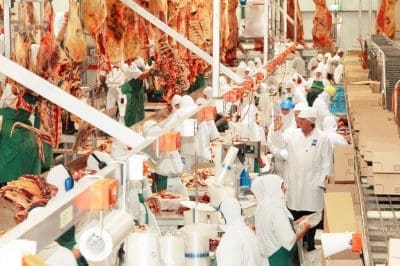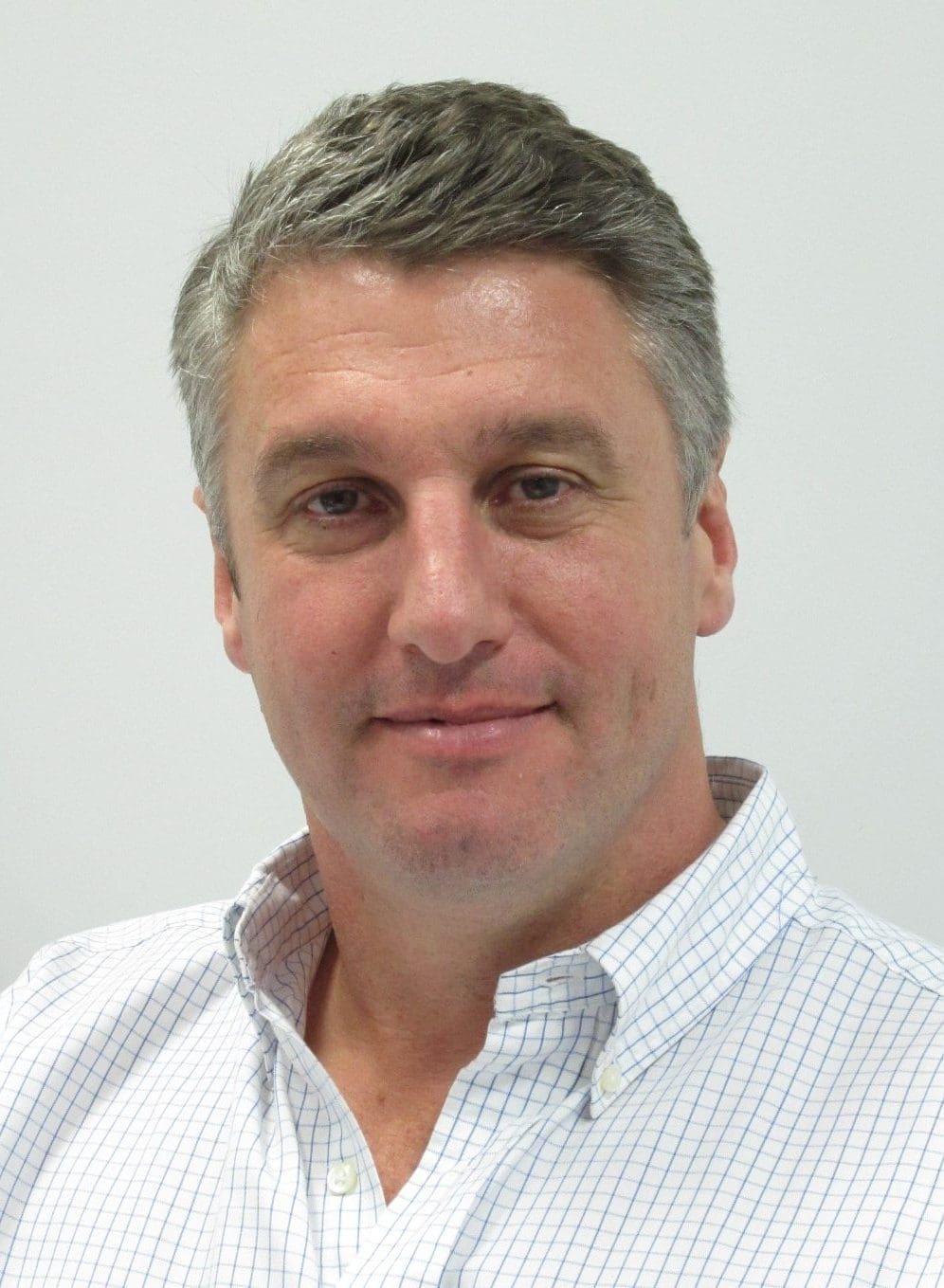THE nation’s largest beef processor, JBS Australia, will shortly start a second production shift at the company’s huge Dinmore export plant near Ipswich, west of Brisbane.
Subject to weather and other factors, the new shift is anticipated to start on Monday 19 February, operating four days a week.
 Following an ongoing recruitment drive that started in September last year, JBS has recruited more than 300 new team members, which the company said would enhance the facility’s operational capacity and reaffirm its status as a key employer in the region.
Following an ongoing recruitment drive that started in September last year, JBS has recruited more than 300 new team members, which the company said would enhance the facility’s operational capacity and reaffirm its status as a key employer in the region.
Eighty percent of the new personnel have been local Queensland residents, but the Dinmore facility celebrated a diverse culture of 47 nationalities, and welcomed more Pacific Australia Labour Mobility (PALM) scheme and international workers this year.
See Beef Central’s processing labour article published yesterday, talking about growth in PALM and 482 visa offshore workers in the meat industry over the past 12 months.
JBS has been noticeably active in the cattle market over the past week, putting cattle together for its enlarged Dinmore production.
At full double-shift daily capacity, Dinmore is the largest beef processing plant in the southern hemisphere when measured by carcase weight, accounting for about ten percent of Australian beef production, or around 3400 head per day.
Significant milestone

Brent Eastwood
JBS Australia chief executive officer Brent Eastwood said the operational expansion marked a significant milestone for Dinmore and reflected JBS’s commitment to meeting the growing demands for its products, while being a strong supporter of the local economy and community.
The new operational timeline at Dinmore introduces a four-day roster designed to optimise work-life balance for the team, while maintaining high levels of productivity, JBS told Beef Central, following a request for information.
Dinmore employees will now be rostered across a day shift and an afternoon shift, allowing for a seamless continuation of operations and the assurance of a consistent supply to help meet growing customer demand for high-quality red meat products, the company said.
The dual-shift system is expected to eventually double Dinmore’s daily processing capacity. JBS anticipates a gradual ramp-up of production over the next 4-5 months, dependent on the variables of labour availability and cattle supply.
This phased approach would ensure optimal efficiency and quality control across Dinmore’s operations, the company said.
Dinmore has not operated a second shift since the drought period in 2019, when cattle turnoff pushed weekly kills across eastern Australia into record territory.
Mr Eastwood said the company looked forward to the commencement of the second shift, as JBS continues to expand its operations responsibly and sustainably.
“We are thrilled to add over 300 new roles to Dinmore and have been encouraged by the diversity of our applicants from school-leavers to career-switchers, and those seeking additional earning opportunities, and of course our valued PALM workers,” he said.
“Our investments at Dinmore underscore our commitment not only to produce superior quality beef products, but also to generate meaningful employment opportunities and contribute to the fabric of the local economy.
Dinmore plant manager Murray Wilson said he was excited to welcome a diverse team with a vast range of skillsets to underpin the plant’s second shift.
“We have many new faces joining Dinmore, with each recruit bringing unique skills and capabilities to our growing team. We have on-boarded electricians, maintenance supervisors, butchers, slicers and all roles in between to create a well-rounded team that boosts our production capacity safely and efficiently.”
“We look forward to training and supporting our new team members as they start their new role, while making them feel welcomed within our JBS family,” Mr Wilson said.
Expansion plan launched in September
The plan to expand production from a single to double shift was announced by JBS in September last year.
At the time, the target was seen as somewhat ambitious, as the industry was still heavily challenged by labour access issues.
Dinmore produces a wide range of grass and grainfed beef brands that are supplied to major national Australian supermarkets and overseas markets in Asia, North America and the Middle East.
As part of its recruitment drive launched in September to encourage locals to apply for the new positions, JBS offered new flexible work initiatives, and established a program working with Brisbane and Ipswich High Schools to provide school-based traineeships and a pathway to employment for school-leavers.
At the time the expansion project was announced, chief executive Brent Eastwood said the company’s Dinmore asset was very important for the beef processing sector, and for food security reasons.
After sinking to 35-year lows after the 2019 drought, the Australian beef herd was returning to more normalised numbers, he said.
“We believe that creates this opportunity to put this second shift on, and bring Dinmore back up to a ‘new normal,’ which will be somewhere between where we are today (1700 head in September), and a higher number, that’s not yet defined.”
“We believe overseas beef markets will get back to a more normalised state. The cycles are turning for Australian beef. In the US, we have an opportunity as a country to win back market share, and Dinmore is very well positioned for that,” Mr Eastwood said.
“We believe it’s the right time,” he said.
“We are working closely with the local, state and federal governments on training and skills, to help fill the great career opportunities we have available.”
During September’s announcement, Mr Eastwood said with more cattle now coming to market that needed to be processed, he hoped JBS could accommodate larger numbers.
“It’s a cyclical business. Production capacity has been down as a result of labour shortages, so to get back to some degree of normality is good for the cattle producer,” he said.
“Increasing production in this way should make more beef available. I’d imagine it’s good for everybody, including the consumer,” Mr Eastwood said.
“Australia, as a country, has lost a lot of beef market share to the US exporters over the past three or four years of very low production, as our own herd recovered from the 2019 drought. There’s an opportunity for us to now in those markets that have been depressed, and which have been challenged due to inflation and currency movement.”



Is Brent Brazilian? Why are Brazilians calling the shots/grid price for the Australian beef industry?
We can assure you that Brent is a dinki-di Aussie, Dane, although born across the ditch in NZ. If the “Brazilians were calling the shots on grid prices,” as you suggest, there’s nothing stopping their numerous competitors – Teys, NH Foods, Kilcoy, Bindaree, Thomas Foods International, Midfield etc – bidding cattle away from them. Editor